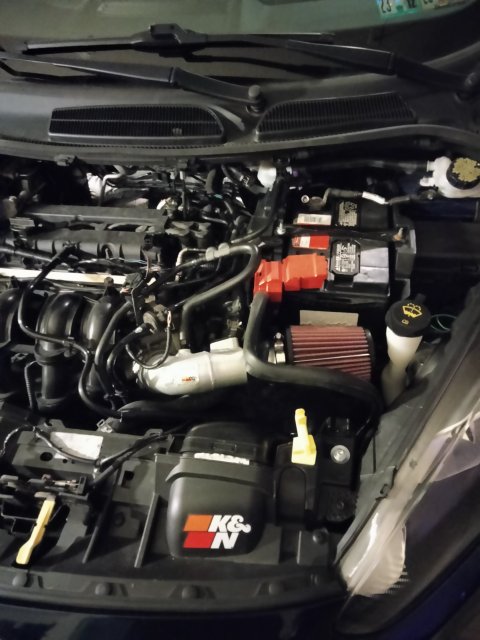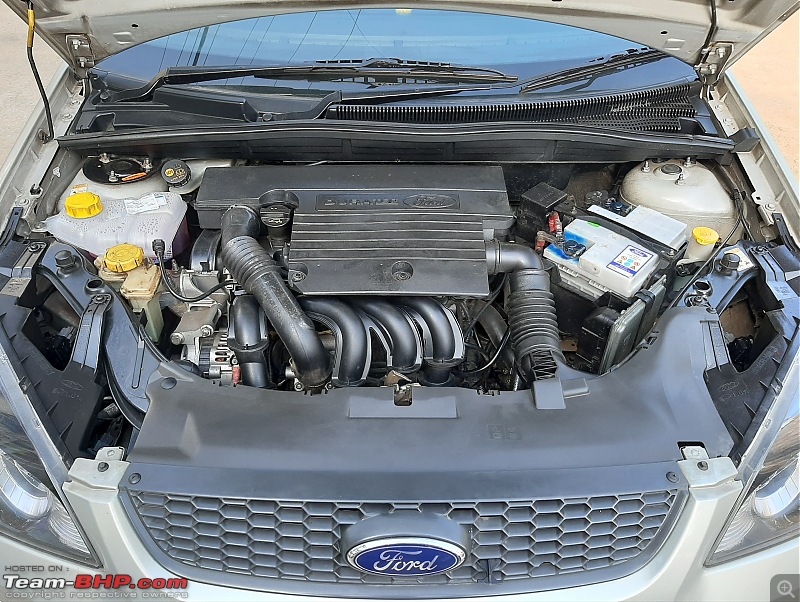The Future of Engines: Developments Driving Sustainable Power Solutions
As the automobile market navigates the crucial transition in the direction of sustainability, the future of engines is progressively specified by groundbreaking advancements. Electric engine developments, along with encouraging growths in hydrogen fuel cells and biofuels, are reshaping the landscape of power services. The appearance of hybrid systems better complicates this evolution, offering both challenges and possibilities to minimize discharges properly. Coupled with the combination of expert system in engine layout, these technological strides increase critical concerns regarding their long-term practicality and influence on traditional paradigms. What might this indicate for the market and consumers alike?
Electric Engine Advancement
The advancement of electric engine advancements symbolizes a crucial change in the auto and aerospace industries, driven by the urgent need for sustainable choices to fossil fuels. This transition is characterized by significant advancements in battery modern technology, power electronics, and electrical motor layout, which jointly improve the performance and efficiency of electrical engines.
Current developments have caused the production of lighter, extra energy-dense batteries, such as lithium-silicon and solid-state batteries, which assure longer varieties and shorter charging times. Additionally, improvements in electrical motor efficiency, such as the use of permanent magnets and progressed cooling down systems, allow electrical engines to run successfully under varying conditions. These improvements not just enhance car efficiency however likewise add to a reduction in total energy consumption.
Additionally, the combination of advanced software algorithms has actually enhanced energy monitoring in electric vehicles, permitting regenerative braking and anticipating charging approaches. As makers significantly accept electric propulsion, the aerospace and vehicle sectors are seeing a paradigm change towards greener innovations. This evolution not just satisfies regulative demands however likewise lines up with customer preferences for eco-friendly transportation options, solidifying electric engines as a cornerstone of future lasting wheelchair.
Developments in Biofuels
As the aerospace and automobile sectors progressively focus on sustainable energy resources, advancements in biofuels arise as a complementary service to electrical engines. Biofuels, acquired from natural materials such as crops, waste, and algae, provide a cutting-edge avenue for reducing greenhouse gas emissions and dependence on fossil gas.
Current study has focused on improving the performance and sustainability of biofuel manufacturing. Second-generation biofuels use non-food feedstocks, decreasing competitors with food supply and reducing environmental impact. In addition, advancements in synthetic biology have allowed the engineering of bacteria to produce biofuels much more successfully, resulting in greater returns and reduced production expenses.
Furthermore, the development of drop-in biofuels allows for seamless assimilation into existing framework, enabling a smoother transition for markets generally based on fossil gas. ford fiesta engine. These gas can be utilized in present engines without adjustments, facilitating their adoption throughout various markets
Investments in biofuel innovation, along with supportive plans, are vital to drive technology and scalability. As the worldwide community seeks to battle climate change, biofuels offer a practical, instant solution that lines up with the overarching goal of sustainability in transport and aeronautics.
Hydrogen Fuel Cell Technology
An expanding variety of scientists and business are discovering hydrogen fuel cell innovation as a feasible option to conventional power resources in transport and power systems. This technology transforms chemical energy from hydrogen into electrical energy via an electrochemical response, with water as the only byproduct, making it an eco-friendly option.
The core of hydrogen gas cells is the gas cell pile, where hydrogen molecules are divided into protons and electrons. The circulation of electrons creates power, while protons relocate through a membrane to incorporate with oxygen from the air, developing water. This procedure leads to high performance and visit low discharges, placing hydrogen gas cells as a vital gamer in the shift to sustainable power.
Significant advancements have actually been made in improving the longevity and efficiency of gas cells, along with reducing expenses via cutting-edge production strategies. The development of hydrogen production approaches, such as electrolysis powered by sustainable energy resources, improves the sustainability of the total system. As infrastructure for hydrogen refueling expands and manufacturing approaches become a lot more effective, hydrogen fuel cell innovation holds fantastic pledge for decarbonizing various sectors, including sturdy transportation and stationary power generation.
Hybrid Solutions and Their Influence
Hybrid systems stand for a substantial development in sustainable engine innovation, combining standard inner burning engines with electric propulsion to optimize power efficiency and lower exhausts (ford fiesta engine). This twin method enables lorries to use both source of power, allowing higher flexibility in energy intake and reducing dependence on fossil gas

Along with environmental advantages, crossbreed systems use customers a viable change towards totally electric vehicles. They reduce range anxiety by integrating the comfort of gasoline with the benefits of electric propulsion, making them an appealing choice for a bigger audience. As makers invest in hybrid technology, the development of advanced battery systems and light-weight products proceeds to boost performance. Overall, crossbreed systems represent a crucial step in the direction of accomplishing lasting transportation and addressing the immediate requirement for eco-friendly power services.
The Function of AI in Engine Style
Leveraging sophisticated algorithms and artificial intelligence techniques, the vehicle market is increasingly incorporating expert system (AI) into engine style processes. AI boosts the effectiveness and effectiveness of style by evaluating substantial datasets to identify optimal arrangements and performance specifications. This capacity enables designers to simulate numerous operating conditions and forecast engine actions under several circumstances, considerably decreasing the time and expense linked informative post with standard prototyping approaches.
In addition, AI helps with the development of advanced materials and combustion procedures tailored for sustainability. By maximizing fuel efficiency and decreasing exhausts, AI-driven designs align with worldwide efforts aimed at minimizing the carbon footprint of vehicle engines. Maker knowing algorithms can likewise forecast maintenance demands, causing boosted integrity and durability of engine components.
Moreover, AI contributes in the integration of electrification technologies, such as hybrid systems, where it can optimize battery management and energy healing procedures. As the sector relocates towards even more sustainable power remedies, the duty of AI in engine design ends up being significantly crucial, driving innovation and boosting the performance of future engines. Inevitably, the collaboration between AI and engine style advertises a brand-new era of smarter, cleaner, and more reliable vehicle modern technologies.

Final Thought
To conclude, the future of engines is being formed by a convergence of innovative modern technologies that focus on sustainability. Electric engine developments, biofuel growths, hydrogen fuel cells, and hybrid systems collectively contribute to a significant decrease in emissions and environmental influence. Furthermore, the combination of expert system in engine layout enhances effectiveness and efficiency. These transformative options highlight a commitment to producing a cleaner, extra sustainable automobile landscape, eventually profiting both society and the environment.
Electric engine advancements, along with encouraging developments in hydrogen gas cells and biofuels, are improving the landscape of power remedies. Furthermore, improvements in electric motor effectiveness, such as the use of long-term magnets and advanced cooling systems, allow electrical engines to operate properly under varying conditions. By optimizing fuel effectiveness and reducing emissions, AI-driven styles line up with international efforts intended at minimizing the carbon impact of automobile engines. As the industry moves towards even more sustainable power services, the role of AI in engine style becomes increasingly vital, driving technology and improving the efficiency of future engines. Electric engine improvements, biofuel advancements, hydrogen fuel cells, and hybrid systems collectively add to a significant decrease in exhausts and ecological impact.